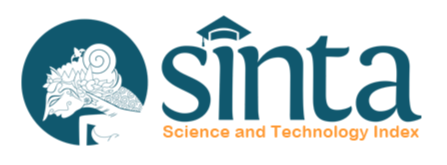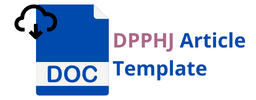Sustainable Development and Landscape Protection in Low-Income Urban Coastal Areas: Empowerment Through Sovereignty and Deliberative Participation
DOI:
https://doi.org/10.12928/dpphj.v15i1.3030Keywords:
coastal communities, empowerment, sustainable development, entrepreneurship, public-private partnership, sovereignty, deliberative participationAbstract
Background: The Government of Indonesia is currently implementing its Coastal Community Economic Empowerment Program or Pemberdayaan Ekonomi Masyarakat Pesisir (PEMP) to numerous coastal communities in the island of Java, Sumatra, Sulawesi, Kalimantan and Nusa Tenggara. The program is geared to empower local coastal communities through its integrated, holistic vision, its local-based, participatory method, and its public-partnership approach. Locality is important since the program aims to induce local initiatives and retain social and economic progress within the area, taking into account its ecological carrying capacity. Method: The research is a qualitative inquiry using ethnomethodological tools and purposive, snowball sampling. The research was conducted in 2015-2016 in Cilacap, Central Java.  Data analysis was conducted through tabulation, categorization, comparison, conceptualization and theorization. Results: Issues beset the government’s PEMP program, including its utilitarian framework to coastal resource governance, its adverse incorporation of small fishermen into the fishing industries, and its unsustainable public-private partnership to promote entrepreneurial growth. Attempts to resolve those issues include ensuring that funding for the PEMP program is incorporated within the yearly provincial and regency budgets and regulations, instilling consensus building over the program’s direction and activities with local communities and the private sector through the Provincial and Regency Level People’s Representative Council, and brokering with local communities and the private sector to achieve workable common ground should conflicts arise. Conclusion: Establishing sound intervention policies and programs require securing flexibility and adaptive management capacity through negotiations and brokering.
References
2. Gritten, D., Blanket Strategy: A Response of Environmental Groups to the Globalizing Forest Industry. International Journal of the Commons. 2010;4(2):729–757.
3. Fabia R, Gallagher J, et al. Efforts to catalogue non-governmental organizations with a role in global burn relief. BURNS. 2020;46(4):804-816.
4. Orozco-Quintero, A., Community-based enterprises and the commons: the case of San Juan Nuevo Parangaricutiro, Mexico. International Journal of the Commons. 2010;4(1):8-35.
5. Badan Pusat Statistik., 2000. Statistik Indonesia 1970-2000, Retrieved February 16, 2004, from www.bps.go.id/sector/population.
6. UNEP., 1995. National Report of Indonesia: Preliminary Framework of a Strategic Action Program for the South China Sea, UNEP East Asian Seas Regional Coordination Unit, pp. 148.
7. Ostrom, E., Ed., 2007. Understanding Knowledge as a Commons. From Theory to Practice. Cambridge, MIT Press.
8. Roos A, Kostakis V, Giotitsas C, Introduction: The Materiality of the Immaterial: ICTs and the Digital Commons. tripleC. 2016;14(6):48-50.
9. Plumwood, V., 2002. Environmental Culture: The Ecological Crisis of Reason. London, Routledge Publications.
10. Whiteside H, Privatizing Canadian government land and real estate: Railroads, reconciliation, and rip-offs. Land Use Policy. 2020;9:104821.
11. Ostrom, E., Collective Action and the Evolution of Social Norms. Journal of Economic Perspectives. 2000;14:137-158.
12. Yoder, L., Compelling collective action: Does a shared pollution cap incentivize farmer cooperation to restore water quality?. International Journal of the Commons. 2019;13(1):378-399.
13. Mohan, G. S., Kristian S., Participatory Development & Empowerment: The Dangers of Localism. Third World Quarterly Journal, 2000;21:247-268.
Downloads
Published
Issue
Section
License
Authors transfer the copyright and grant the Disease Prevention and Public Health Journal right of first publication with the work simultaneously licensed under a Creative Commons Attribution License (CC BY-SA 4.0) that allows others to share (copy and redistribute the material in any medium or format) and adapt (remix, transform, and build upon the material) the work for any purpose, even commercially with an acknowledgement of the work's authorship and initial publication in Disease Prevention and Public Health Journal. Authors are able to enter into separate, additional contractual arrangements for the non-exclusive distribution of the journal's published version of the work (e.g., post it to an institutional repository or publish it in a book), with an acknowledgement of its initial publication in Disease Prevention and Public Health Journal. Authors are permitted and encouraged to post their work online (e.g., in institutional repositories or on their website) prior to and during the submission process, as it can lead to productive exchanges, as well as earlier and greater citation of published work (See The Effect of Open Access).

This work is licensed under a Creative Commons Attribution-ShareAlike 4.0 International License.







